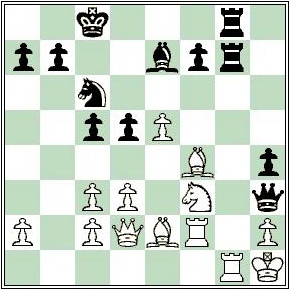John (“J.J.”) O’Hanlon won the Irish championship nine times between 1913 and 1940. His most significant international successes were at Broadstairs 1922 where he tied with the future World Champion Max Euwe (winning their individual encounter) and Hyѐres 1928 where he tied with the famous artist Marcel Duchamp and Vitaly Halberstadt.
Thomas Cox only started playing chess in 1933 but within 3 years had already won the Leinster championship. He then went on to take the Irish championship title in 1937 and 1938, before sadly succumbing to tuberculosis at the age of 27 in October 1939.
The Jover family entertained in circuses, theatres and music halls all over the world for three generations. The family, headed by Julian Jover had performed as “The Mirthful Jovers” at the Royal Variety Performance in 1922. Amongst the troupe was Julian’s son, Tommy. By 1937 Tommy was now part of a duo “The Comical Jovers” and at the beginning of March that year they were topping the bill at the Gaiety Theatre in Dublin. When that duo broke up two years later, Tommy started a new act with his son Raf and daughter Nena. Nena’s autobiography “My Father was Carmen Miranda: Memoirs of an English Show Girl” chronicles their performances in Britain during the Second World War when Tommy did a turn as a female impersonator – topping his head with a fruit basket like Carmen Miranda.
Tommy Jover was also a chess player of some ability. The Irish Independent for the 5th March 1937 put it this way:
“In his travels all over Europe Mr Jover, who is an accomplished linguist, has played with the leading masters. The experience thus gained has given him a very attractive style of play.”
During his stay in Dublin performing at the Gaiety Theatre Jover found time to play friendly games with O’Hanlon, at the time the Irish champion and who was a personal friend, and Thomas Cox, then Leinster champion, on the 4th March. The second of those games against Cox was drawn but, as the Irish Independent put it, Jover “caught the Irish champion napping.”
O’Hanlon, John – Jover, Tommy
Friendly game, Dublin 1937 [C29]
[Source: Irish Independent, 5th March 1937]
 Jover offered a pawn sacrifice with a view to attacking down the g-file against O’Hanlon’s castled King. In a normal tournament game, O’Hanlon might have decided to take a more careful course but he snapped up the proffered pawn, perhaps to ensure his friend had an entertaining game. Jover gained sufficient compensation for the pawn but then unsoundly sacrificed a bishop. However when O’Hanlon then played an obvious move to occupy the g-file (but also the one his opponent was probably hoping for), Jover then uncorked a queen sacrifice leading to checkmate.
Jover offered a pawn sacrifice with a view to attacking down the g-file against O’Hanlon’s castled King. In a normal tournament game, O’Hanlon might have decided to take a more careful course but he snapped up the proffered pawn, perhaps to ensure his friend had an entertaining game. Jover gained sufficient compensation for the pawn but then unsoundly sacrificed a bishop. However when O’Hanlon then played an obvious move to occupy the g-file (but also the one his opponent was probably hoping for), Jover then uncorked a queen sacrifice leading to checkmate.
1.e4 e5 2.Nc3 Nf6 3.f4 d5 4.fxe5 Nxe4 5.Nf3 c5 6.d3 Nxc3 7.bxc3 Be7 8.Be2 Be6 9.O-O h6 10.Qe1 Nc6 11.Qg3 Qd7 12.Qxg7 O-O-O 13.Qg3 Rdg8 14.Qe1 Rg7 15.Rf2 h5 16.Kh1 h4 17.Bf4 Rhg8 18.Qd2 Bh3 19.gxh3 Qxh3 20.Rg1 (diagram) Qxf3+ 0-1 [Click to replay]

I loved reading about the chess matches between O’Hanlon and Tommy Jover, my dad
WhenTommy wasplaying chess,he was able to put everything out of his mind,He once missed a performance at the London Colesium because of this , talent, during WW11.he took on th e Royal Airforce in a match held in Aldwych Tube Station against 21 of their best players,symaltanious I think it was called.He won 20 and tied the other match,Another typical Tommy,was at the Etoile Theatre in Paris,where the dressing rooms were open ,without a board in front of him,he played 6other performers who had boards,he played them blind and beat them easily.He was truly a wonderful chess player.
My brother is quite correct. When Daddy was playing chess he didn’t hear anyone or anything. We could get away with murder at those times..If he ever lost a game which was hardly ever, he would sit in front of the chess board and go over and over his mistake. My mother would say, “Don’t go near Daddy”. She never said why.